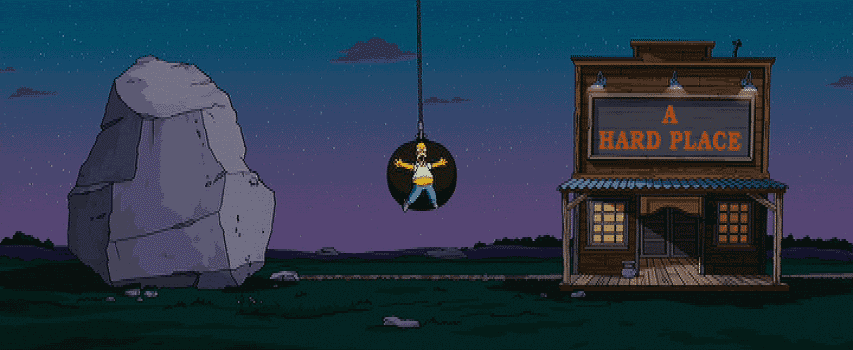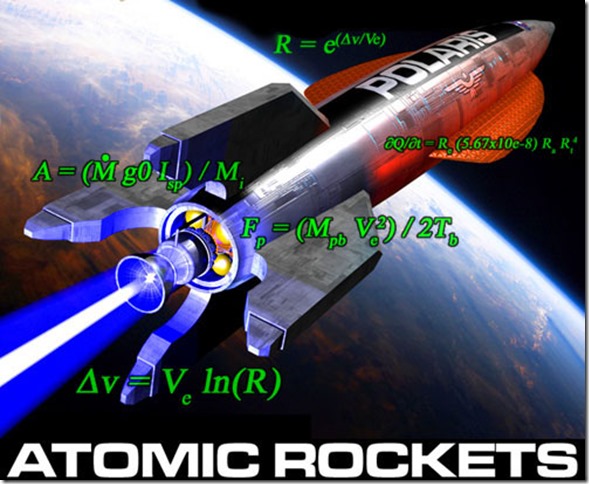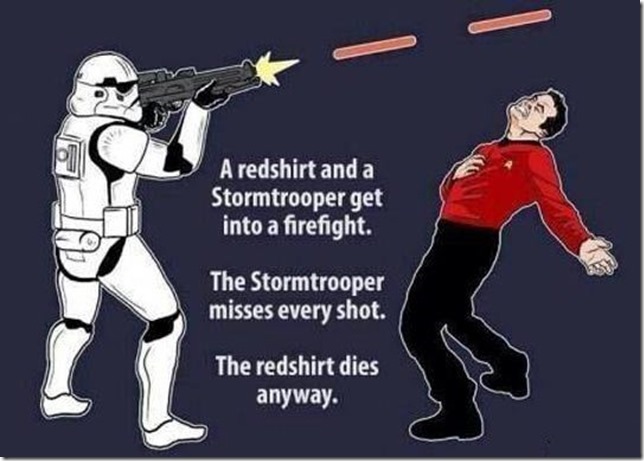I think as long as I knew about roleplaying games I was looking for the “perfect” science fiction setting. Of course there’s no such thing. But there’s something close, a setting which I would love to run games in and which I can really make my own. During the last twenty years or so, I have created several homebrew SF campaign settings. But usually I am not perfectly happy with them. One reason for this is probably that I can’t make up my mind. I am always torn between the gritty hard science setting I’d love to play in and the space opera setting I could find players for.
The question quickly boils down to whether I want to put a lot of work in something I’d love even if I will never put it to use. Don’t get me wrong, I also love space opera settings. But when it comes to writing my own stuff, I always want to get things “right”. Even when I have some cool ideas for a light-hearted space opera setting, I usually end up on Atomic Rockets (a website I could peruse for days at a time!) and try to reconcile my pet theories with real-world physics. This ends with me throwing out half the stuff I’ve written so far, in order to make the technology more “real”.
So I constantly try to walk the thin line between approachabilty and realism, and – trust me – I am not good at tightrope walking. The next problem is that I am often inspired by existing settings from books, movies, video games, but I don’t want my homebrew setting to look like some Frankensteinian nightmare. Most people I know would probably not care. A lot of people have successfully run or played in kitchen sink settings in which space marines from Warhammer 40,000 fought Borg from the Star Trek universe while being allied to the Jedi order from Star Wars. This just feels wrong to me.
I think my mental health issues are partly to blame for this. Back in the day, before I had to deal with depression, anxiety, and all these other nice things, it was much easier to be creative. Nowadays I often overthink everything and turn activities that should be fun into a nightmare. Ok, perhaps I am exaggerating a bit, but I guess it helps to make a point. What I am now hoping for is advice from you guys. I am pretty sure I am not the only one having this problem. How have you dealt with something like this in the past? Please post your comments below!




First, you’ve set yourself a noble but challenging goal. SF RPGs are unique beasts. Each is comprised of many small setting decisions that seem to inevitably go astray from player expectations, particularly with hard SF.
I lean more to the space opera side myself, but I’m wrestling with similar issues with my 13th Age meets Numenera setting.
One thing you could do is to spend some prewriting time playing with concepts that you want in your SF setting. You could start with a lists of what you do and do not want in your setting, or you could write ideas on notecards and then go back through the cards until you have a deck of ideas that you want to work with.
Another option would be to work on stories that take place in your settings. It may be that fiction is a better vehicle for your Hard SF. Or, it might be that through stories you can build an audience for the game.
On the depression sideI can only suggest thing that work for me, some of the time. Go back to the stories that inspire you. This has been a huge help while working on Conan. Whenever I get stuck, rereading one of the stories or seeking out an REH story or Mythos tale that I haven’t read has helped to launch me into another round of writing. When wrestling with depression, I’ve found that success builds on success and that setting small, achieavable goals helps.
Speaking up also helps. Hang in there.
I am great at setting myself great and noble goals. Fulfilling those goals is quite a different story. Going back to stories that inspired me is actually a great idea. I have done way less reading recently than I planned to, and perhaps it’s the best way to charge my creative batteries.
You were one of the people working on the new Conan RPG? Great work!
Well as you know I sometimes tend to overthink this but have been cured of this through collaborative games like Beyond the Wall or Dungeon World/Apocalypse World. Just playing (or watching ) these games showed me how little my players care about the details and if they do they can make up their own. I understand letting go of control is difficult but it helped me immensely.
However you should do what is fun for you, if you want a realistic setting go ahead and create it. Then it is out of your system and maybe someday someone may want to play a realistic game with you. Write it for you and not any supposed third party. Heck I have a dozen Campaigns on my harddrive that will probably never get played. Some I even created websites and created full color handouts for etc.
The joy sometimes is in the creating.
The thing is that I care about the details especially when I am in the GM’s shoes. I am actually much more forgiving as a player, although it was extremely hard in that one Shadowrun game I played in. The person who wrote that particular adventure didn’t know a thing about physics. Oh, boy, that was terrible.
I guess it’s probably a good idea if I write down my gritty hard science campaign setting eventually to – as you put it – get it out of my system. Perhaps someone is actually crazy enough to play it. 😉
I’ve enjoyed running licensed speculative fiction games, from Star Trek and Star Wars to Shadowrun and more. However, I usually end up gravitating back to my homebrew setting, where I can dial the amount of hard science fiction vs. space opera or fantasy based on my preferences and those of a particular cohort of players.
I’m currently in the process of converting my long-running “Vortex” universe from FATE 3e to D20/D&D5e because of role-player requests, and I agree that it’s important for the gamers to contribute to each campaign.
In my latest case, I’m working on incorporating some psionics (replacing magic) while balancing D&D’s focus on class/race tactical roles with my storytelling style and simple starship combat.
I hope that you can find the process of building settings and scenarios to be a creative release rather than a burden, and it’s best to start with short lists of your favorite things to include. For example, I want underdog humans, lots of aliens, and relatively easy faster-than-light travel but limited FTL communications.
World-building can be intimidating, but starting with what you and the players would like to see or do can help break it into manageable chunks. Good luck!
I guess making a short list of things to focus on is the important part. I usually want to have too much, and quickly things grow over my head. Breaking everything into more managable chunks might make things easier. 🙂
Well you know me my friend, the compulsive homebrewer. So I love world building. However I totally understand the conundrum.
What works for me it doing a LOT of preparation before the game. Not necessarily int he specific plot for the players, but the universe. This helps me set it up and understand it. I share it with player, some read it some don’t but I got a firm grasp of my concept of the universe.
Sci-fi, like previous comments have mentioned before is its own kind of beast. Make that list mentioned above, the elements you want to have, write them in and create a foundation document. Don’t give up, work on it an work so more. Don’t take it to the table until you are happy, BUT set yourself a date, 6 months, a year, to finish the project. Stick to it. Share it. have people give you feedback.
I recently tried my hand at coming up with a kitchen sick sci-fi campaing. I’ve never tried it but know a GM who does it with great success…
Don’t be too hard on yourself. That to me is the best advice to GMs, we can be overtly critical of our own work, and hey, we play to have fun, if we make mistakes, there is a session next week. Don’t over analyze it. Let it go…
Hope it helps!
Hehe. Overanalyzing is my middle name.
I do this all the time – heck I have a 30+ year DnD campaign world going and I still do it with that. I think part of this is about finding a rule engine that doesn’t strangle you with it’s granularity and verisimilitude, and I say that because I can get hung up on the little details of world-building. The canon Third Imperium (3I) setting of Traveller is actually pretty notorious for this (go check out the COTI forums if you doubt me). I’ve run Traveller games that were homebrewed hot messes of content stolen liberally from anywhere that sounded fun – and my players had a great time with it. I’ve also run games that were much more focused and smaller in focus.
I’d suggest taking a ProtoTraveller attitude. Roll up or otherwise generate a subsector, make one and only one planet Imperial, make one, and only one planet in the subsector for another other “Imperial-scale” polity. Make the rest of the planets independents and various client states. Now you can explore lots of little ideas with the various systems, and flesh out only as much as you want about the “Imperial Powers” as you want (because they really aren’t there).
If the players want to head into Imperial space, let them if you like, but give them good reasons to stick around in this subsector. Don’t go for scripted play, go for emergent play – and feel free to let them become little warlords or whatever in this little sandbox if they want. Again, you don’t have to worry about this, it’s nowhere important. They’re king of a chicken hill.
But you can fill this chicken hill and it’s surrounding animal pens with all sorts of adventures and exotic treasures and abandoned Jedi temples or lost treasure ships or whatever as you like and that appeals to you and the players.
D.
That’s actually almost exactly what I had in mind for the planned Traveller/Cepheus Engine game. 🙂